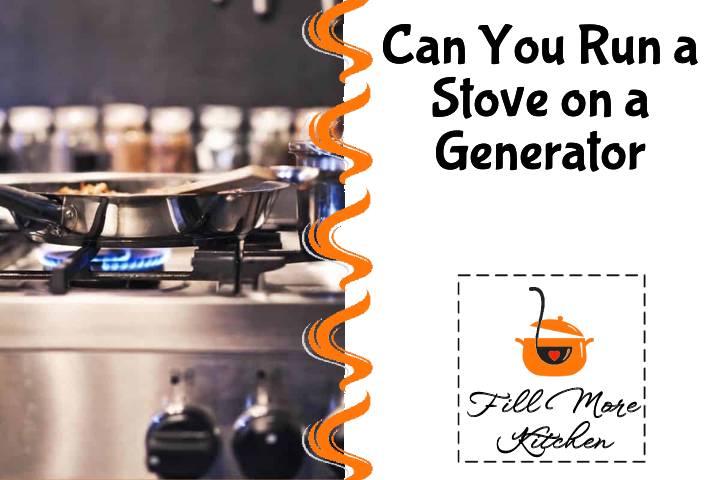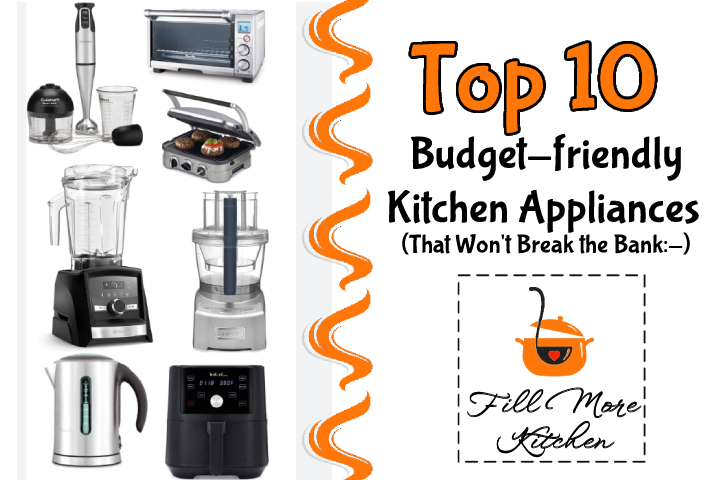Experiencing a power outage can be very inconvenient, especially when it happens at the most inconvenient times or lasts longer than expected. If you’re worried about providing food for your family during a power outage, you may be curious if your stove can still function to cook non-perishable meals.
If you are wondering whether you can use a generator to power your stove during a power outage, the answer is yes. However, it is important to note that there is no universal generator that will work for all stoves. You must consider the specific requirements of your stove and the amount of watts needed to operate it when selecting a generator.
To determine if a generator is the appropriate solution for powering your stove and other essential appliances during a power outage, it is necessary to first identify the type of stove you have and then determine the required size of the generator.
How Does a Generator Power a Stove?
During a power outage, a generator is often used by homeowners to supply electricity to their homes. It can function as a secondary power source or temporary power until the main power is restored, enabling you to operate appliances such as your stove, refrigerator, and water heater.
In order to accomplish this task, a generator utilizes fuel like gas or propane, which enables it to generate an electrical current by rotating a conducting coil within a magnetic field, thereby producing an electric current in the coil.
The power generated by the generator is transmitted to the appliances, enabling them to function effectively and allowing you to use your stove for cooking regardless of external conditions.
Can a Generator Power My Stove?
Stoves vary in their power requirements, so not all stoves need a generator to function when there is no electricity. To determine if your stove requires a generator, it is essential to identify its type.
Common stovetops include:
- Gas cooktops are a popular type of stove in the country due to their fast heating ability with powerful flames, and they do not need electricity to function. In case of a power outage, you can light the gas cooktop by turning the knob to low and holding a match or lighter to the burner, which will ignite the flame and allow you to use it for cooking without any power.
- Electric cooktops are a popular choice for homeowners due to their easy-to-clean nature, but they need electricity to function, unlike gas stoves. Therefore, if there is a power outage, you will require an alternative power source such as a generator to operate your electric cooktop.
- Induction cooktops use electromagnetism to transfer heat and have a smooth surface that doesn’t retain much heat. They require a steady power source during or after a storm, but fortunately, they can be easily powered by a generator that meets the necessary wattage.
- Coil cooktops work similarly to electric cooktops but have a different appearance with circular coils as burners instead of a smooth finish. These coils require electricity to heat up, which can be supplied by a generator during power outages.
There are numerous types of stovetops available, and if yours is not mentioned above, it is important to ensure that it requires a power source to function during a power outage before purchasing a generator.
How Many Watts Does an Electric Stove Require?

The amount of power required to operate a stove depends on the specific brand and type of appliance, with electric stoves typically needing between 2,000 and 5,000 watts to function optimally.
Typically, stoves require around 3,000 watts of power, but it’s important to note that each stove is unique and may fall within a different range. To determine your stove’s specific wattage requirement, consult the owner’s manual.
The amount of electricity drawn by the burners on an electric stovetop varies according to their size, with larger burners requiring more power. Electric stove cooktops typically consume between 1,200 and 3,000 watts of electricity, depending on whether a small or large burner is being used.
Knowing the watts needed to operate your stove will assist you in determining the appropriate generator size for your requirements, as we will explain further below.
What Size Generator Do I Need to Run a Stove?
Running a stove on a generator requires a generator that is tailored to your specific needs, as there is no universal size that will work for everyone. To determine the appropriate size of generator for your stove, you must consider various factors and ask yourself relevant questions.
Apart from your stove, what appliances will the generator need to power?
If your intention is to use a generator solely for operating the stove and some lights in your house, then a smaller generator would suffice. Nevertheless, if you aim to power other significant appliances like the refrigerator, water heater, window air conditioner, and more along with the stove, you will require a much larger generator that can deliver adequate power.
For what duration will the generator be in operation?
Are you buying a generator for a short-term fix during a small power interruption, or are you seeking a long-term solution to supply electricity for an extended duration?
If you require more than just running a single stove, it is important to consider factors such as tank size, fuel consumption, and other similar aspects. It can be very frustrating to have a generator that cannot handle the required job. Therefore, it is advisable to opt for a generator that can provide more power than what is actually needed.
Will you need to power your entire home or only essential appliances like a stove?
The appliances that you deem as “essential” may differ based on your location, and in addition to your stove, you may want to power other appliances such as the refrigerator at the same time.
If you have a generator rated at 5,000 to 7,000 watts, it should be sufficient to run most of your essential appliances including the stove. But if you want to power your entire home as usual, then investing in a heavy-duty generator with a capacity of 7,500 watts or more would be a wise decision. The size of the generator required will depend on the number of appliances you wish to operate.
When considering running a stove on a generator, it is important to calculate the required watts for all essential appliances, including the stove, to determine the appropriate generator size.
Figuring Out if You Need a Generator For Your Stove
Before going to the home improvement store to purchase a generator, it is important to ask yourself these questions in order to make an informed decision about powering your stove and other household appliances.
You can also check this video about “Can You Run a Stove on a Generator?”
Check out our top 10 reviews!
Related posts
https://fillmorekitchen.com/why-is-there-white-stuff-in-my-cup-of-coffee-can-i-drink-it/
https://fillmorekitchen.com/can-i-leave-my-rice-cooker-unattended/
https://fillmorekitchen.com/are-halogen-ovens-worth-it/
https://fillmorekitchen.com/should-you-unplug-a-mini-fridge-when-going-away/
https://fillmorekitchen.com/do-you-preheat-an-electric-oven/



